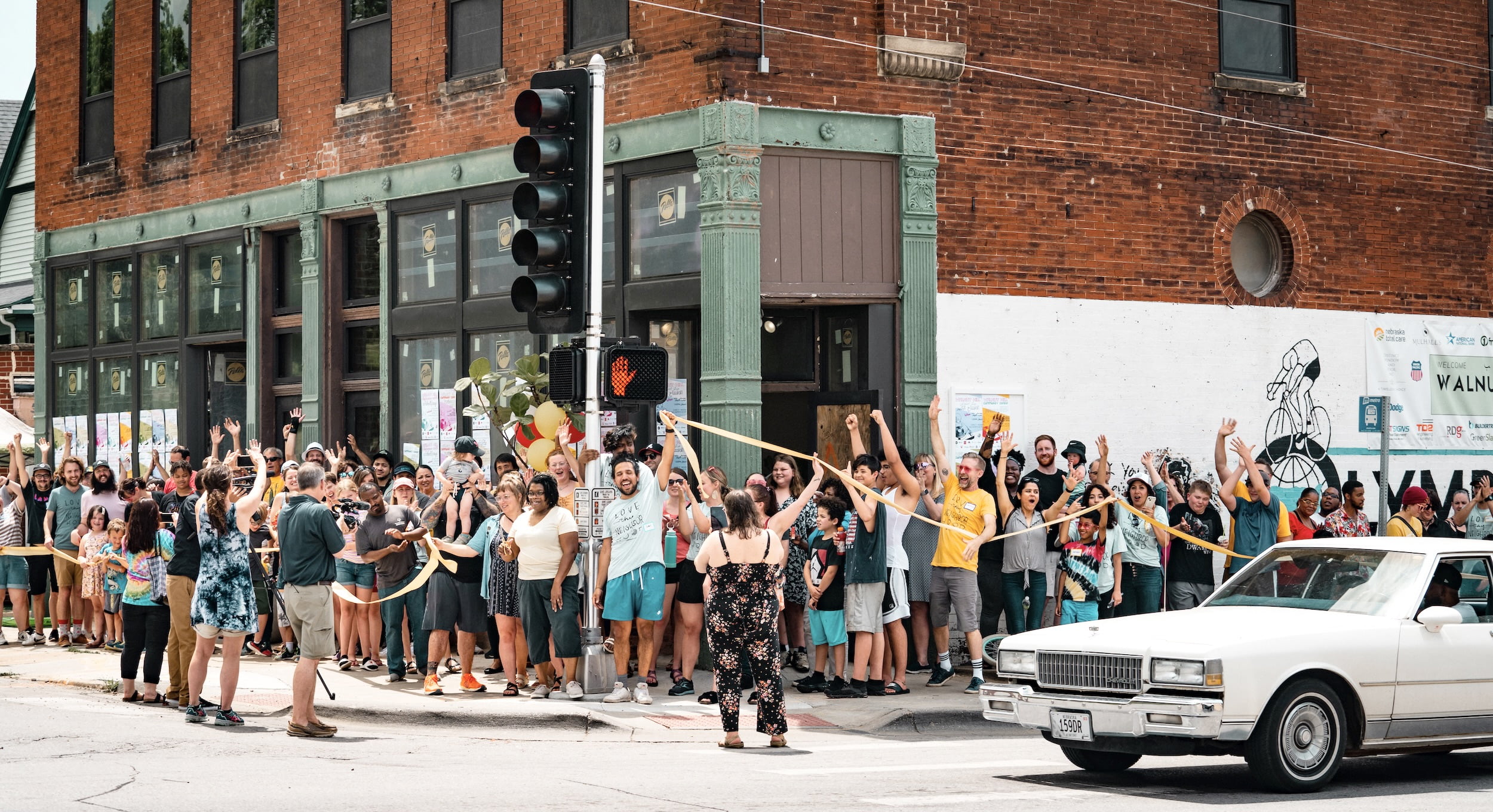Where we grow up matters. Our childhood neighborhood plays a significant role in setting our course in life by determining the quality of our schools, housing, relationships, institutions, and play spaces. In this way, zip codes are more than five numbers at the end of our mailing address; they paint a portrait of geographical inequity in our community.
At inCOMMON, we believe no one should have to face a lifetime of poverty simply because of the zip code they grew up in. Guided by this belief, we partner with neighbors to co-create neighborhoods where families can raise their kids in flourishing environments rich in connection and opportunity.
A few years ago, our team began meeting with neighbors in the Walnut Hill area to see if there was interest in partnering to build on some of the neighborhood’s assets, including the historic corridor and surrounding homes, green spaces and parks, and local leadership and civic pride. These conversations were met with a lot of energy and enthusiasm, eventually leading to the concept of building a neighborhood center, much like the one inCOMMON operates on Park Avenue. The location acquired for this center was the Olympia Cycle building (40th & Hamilton).
In June, the neighborhood celebrated the grand opening of this center, now called the “Walnut Hill Commons.” The Walnut Hill Commons builds on the strengths of people and places in the neighborhood. It serves as a hub that facilitates relationship building, education and employment, leadership development, and neighborhood development efforts.
One of the initial neighborhood development efforts in Walnut Hill has been the creation of a neighborhood plan. Developed by area residents, this plan aims to build a roadmap for future development that celebrates and capitalizes on the unique assets of this area. A vital purpose of this plan is to guide real estate projects, ensuring they align with the vision of existing neighbors and safeguard lower-income neighbors from being priced out.
The formation of this plan is currently in process. Still, we are excited to share the outcome of our first goal: our neighborhood vision statement.
Walnut Hill is a historic neighborhood in the heart of Omaha that treasures its diversity, affordable homes, and green spaces. We take pride in our community and work together to ensure it is beautiful, safe, and welcoming to all.
In addition to outlining a guiding vision for residents and stakeholders, the Walnut Hill Neighborhood Plan will be used as a unifying action plan for future projects in the neighborhood. (As an example, please see the Park Avenue Neighborhood Plan).
For neighborhoods considering undergoing a similar planning process, we highly recommend the investment of time and money required. There are many resources in our community to help neighborhoods thrive. For the Walnut Hill Neighborhood Plan, funds were secured from NIFA’s Housing Study Grant and OCF’s Neighborhood Grant. These funds were used to contract Spark, who is serving as the project’s technical assistant. Additionally, MAPA is preparing to release an “equitable development scorecard” to help neighborhoods and communities advocate for development practices that consider all residents. inCOMMON is also more than happy to share our experiences. Reach out anytime!
This guest blog was written by Christian Gray, co-director of inCOMMON Community Development.

